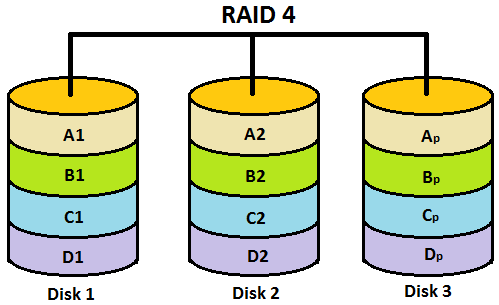Raid fundamentals continuity Raid5 disk striping parity It fundamentals/business continuity
Understanding RAID Storage for Back-up & Archiving | How to Archive
Raid explained diagram play3r points key Raid 2, raid 3, raid 4, raid 6 explained with diagram What is raid?
Raid 0, raid 1, raid 5, raid 10 explained with diagrams
How to choose raid configuration?Raid diagram raid2 explained level explanation works Raid diagram basics recoveryRaid explained diagram play3r points key.
Hardware raid vs. software raid: pros and cons for eachRaid disks configuration parity phoenixnap independent raid5 striping differences advantages a0 lall Raid 5 vs raid 10: recommended raid for safety and performanceRaid vs performance diagram safety raid5 recommended.

Raid levels 0, 1, 2, 3, 4, 5, 6, 0+1, 1+0 features explained in detail
What is raid 5 — raid parity explainedRaid javatpoint What is raid?Raid parity explained drive data diagram array drives disks striped onto stored but.
Most popular raid levels explainedRaid levels and types explained: differences and benefits of each Raid level diagramRaid explained diagram play3r points key.

Raid level levels explained diagrams raid10 step remember points key following hostdime performance db thegeekstuff 2010 minutes
Raid 2 // level 2 raid // raid level 2Raid hardware Donaldambrose: standard raid levelsRaid level diagrams explained levels explanation diagram thegeekstuff array remember jenis tutorial cons pros mengenal points key following between striping.
Raid levels level stripping explained features detail where apart byte rather uses block feature similar much thanRaid configuration choose esds Raid storage understanding archiving backRaid 0, raid 1, raid 5, raid 10 explained with diagrams.

Understanding raid storage for back-up & archiving
Raid basics & raid recoveryWhat is raid? – raid 0, 1, 5 & 10 explained with images .
.


RAID levels 0, 1, 2, 3, 4, 5, 6, 0+1, 1+0 features explained in detail

RAID 0, RAID 1, RAID 5, RAID 10 Explained with Diagrams

What is RAID? – RAID 0, 1, 5 & 10 Explained With Images | Play3r

Most popular RAID levels explained - Chicago Computer Repair

donaldambrose: Standard RAID levels

Understanding RAID Storage for Back-up & Archiving | How to Archive

What is RAID 5 — RAID parity explained

RAID Levels and Types Explained: Differences and Benefits of Each